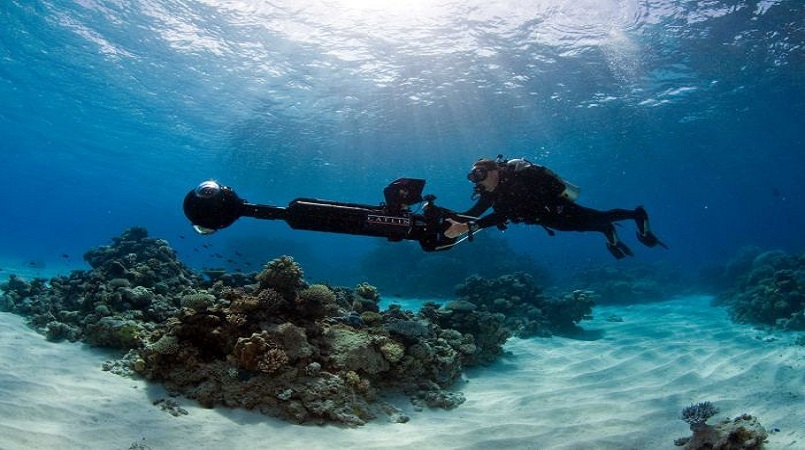
A new global plan aims to save the meagre 10 per cent of the world's coral reefs predicted to survive beyond 2050.
It is the first worldwide initiative aimed at protecting reefs from extinction and to date, funding is coming from philanthropic organisations, not governments.
Scientists estimate 90 per cent of the world's coral reefs will disappear in the next 35 years due to coral bleaching induced by global warming, pollution and over-development.
The grim outlook accounts for the targets set by the Paris Agreement on climate action being met and ocean temperatures stabilising.
The 50 Reefs initiative, launched today at the World Ocean Summit in Bali, is an ambitious plan to identify and protect the world's most critical reefs.
Built on the work of a team led by University of Queensland Professor Ove Hoegh-Guldberg and the Ocean Agency's Richard Vevers, it brings together a coalition of scientific experts and philanthropic innovators from around the world to fund and implement the plan.
Professor Hoegh-Guldberg insisted their approach was realistic, not pessimistic.
"It's based on the best science. It's saying we will only have 10 per cent left but let's make sure those 10 per cent have the best chance of survival."
"There's no global plan at the moment to save coral reefs.
"This is the first of its kind. It's a massive plan."
The 50 Reefs initiative is radical in both its scope and approach. Importantly, it shifts the focus from the most critically endangered reefs to those that have the best chance of survival once global temperatures have stabilised.
Professor Hoegh-Guldberg referred to the process as one of "triage".
"We're only going to have 10 per cent of today's reefs there so, knowing that, how can we best provide support for those reefs so they do survive?"
Mr Vevers said the plan was about scientifically identifying the reefs least vulnerable to climate change and also the ones most important as seed centres to allow reefs to repopulate over time.
He said the predictions were a real wake up call that the planet was potentially losing its most biodiverse ecosystems.
"It's not about losing a tiger or a single species; it's an ecosystem of up to a million species. We're not just talking about corals; we're talking about all the species that are dependent on those corals — that's what's so shocking about what's happening right now," he said.
Which reefs will make the list?
Ground-breaking technology, involving 360-degree virtual reality images, have helped document the state of reefs across the globe and will be used in the 50 Reefs program.
"No-one had ever tried to take 360-degree imagery underwater while motoring along a reef environment," Mr Vevers said.
So far, thousands of images have been taken across 22 countries.
Given the various criteria involved, the job of selecting the 50 reefs will fall to a team of international experts, who are expected to finalise their list by the end of this year.
Whether the Great Barrier Reef is included remains to be seen, although given its size and diversity there is an expectation parts of it would meet the criteria.
"We're going to leave the decision about how we select those 50 sites to the expert group but it's entirely possible that there might be part of the Great Barrier Reef that might be of special importance," Professor Hoegh-Guldberg said.
"Certainly the Great Barrier Reef is an important part of the mix," Mr Vevers said.
"So we're expecting the science to show the areas most vulnerable to bleaching and global impacts and the areas which are least vulnerable and hopefully that will help with the management."
International non-government funding behind plan
"The first phase — to identify those 50 reef systems and to begin to engage with business and governments and so on — is going to cost about a million dollars," Professor Hoegh-Guldberg said.
"The second phase, where we intervene and start to make changes on the ground, we're really talking about a much larger project — we're probably taking about $100 million at the very least."
Frustrated by a lack of political leadership with the management of climate change, the team has secured initial funding for the project from a range of non-government organisations including Bloomberg Philanthropies, The Tiffany and Co Foundation and the family foundation of Microsoft co-founder Paul G. Allen.
It comes after research found the temperatures that caused last year's devastating coral bleaching on the Great Barrier Reef will occur almost every year by 2050 unless greenhouse gas emissions are curbed quickly.
